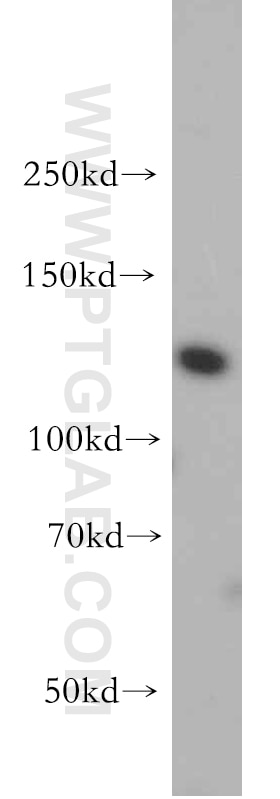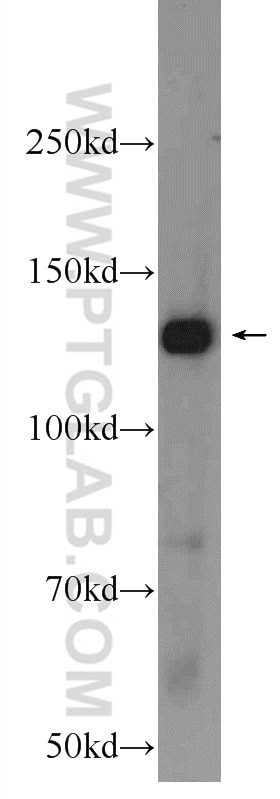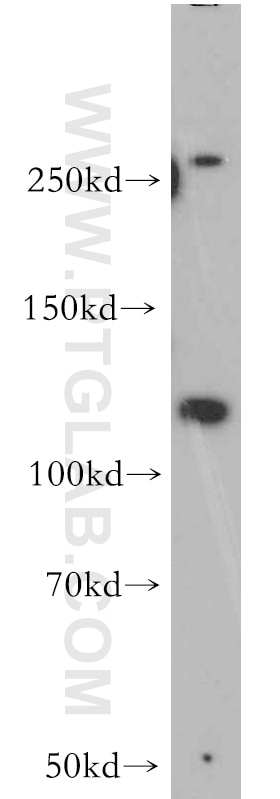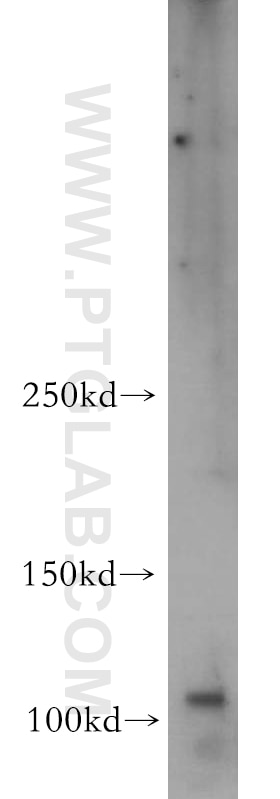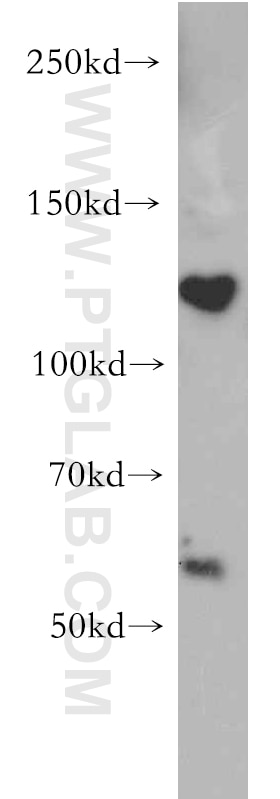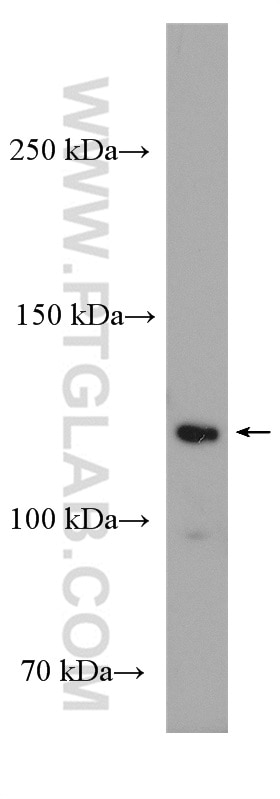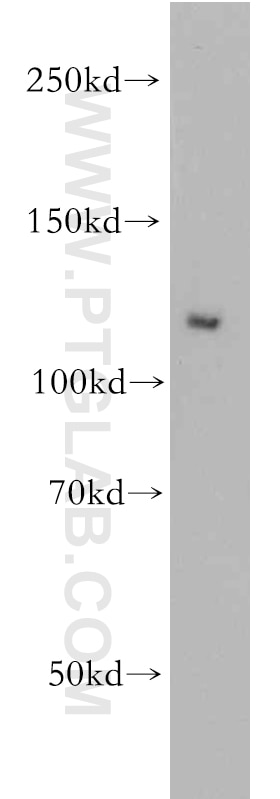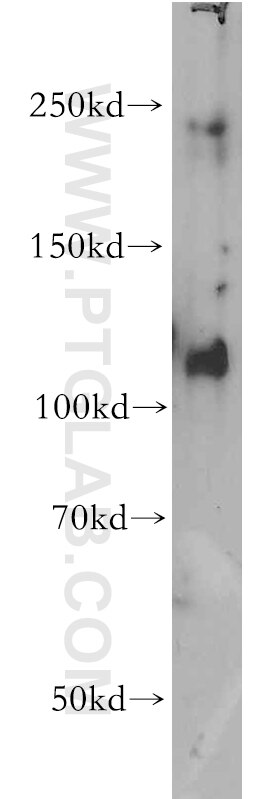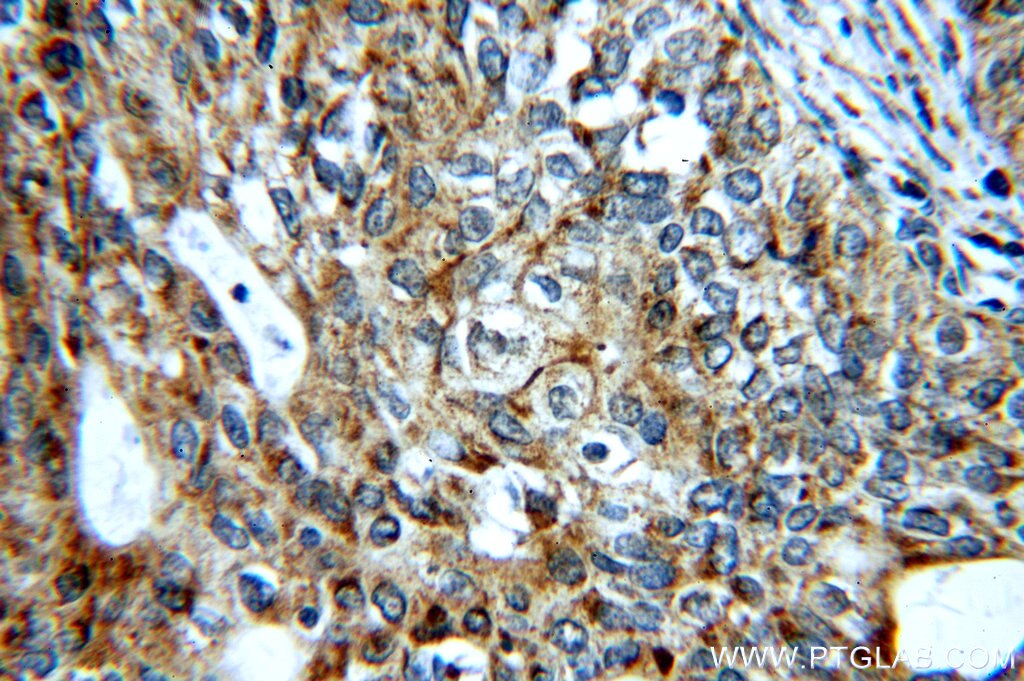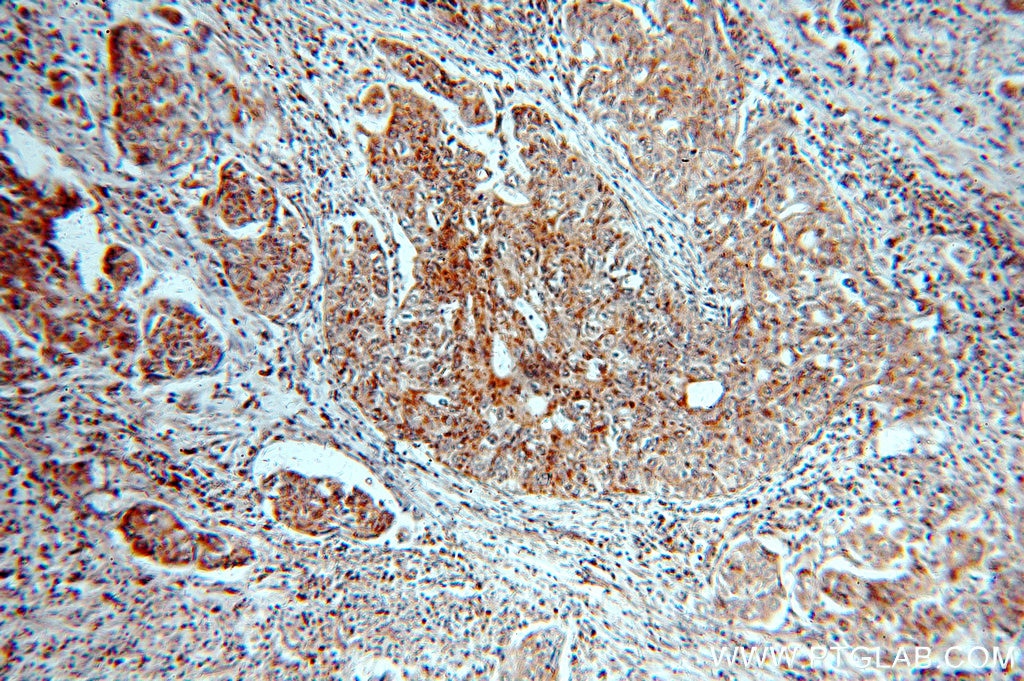Anticorps Polyclonal de lapin anti-PI3 Kinase p110 Alpha
PI3 Kinase p110 Alpha Polyclonal Antibody for WB, IHC, ELISA
Hôte / Isotype
Lapin / IgG
Réactivité testée
Humain, rat, souris
Applications
WB, IHC, ELISA
Conjugaison
Non conjugué
N° de cat : 20583-1-AP
Synonymes
Galerie de données de validation
Applications testées
| Résultats positifs en WB | cellules HepG2, cellules A431, cellules COLO 320, cellules HeLa, tissu hépatique de souris |
| Résultats positifs en IHC | tissu de cancer du col de l'utérus humain, il est suggéré de démasquer l'antigène avec un tampon de TE buffer pH 9.0; (*) À défaut, 'le démasquage de l'antigène peut être 'effectué avec un tampon citrate pH 6,0. |
Dilution recommandée
| Application | Dilution |
|---|---|
| Western Blot (WB) | WB : 1:300-1:1000 |
| Immunohistochimie (IHC) | IHC : 1:50-1:500 |
| It is recommended that this reagent should be titrated in each testing system to obtain optimal results. | |
| Sample-dependent, check data in validation data gallery | |
Applications publiées
| WB | See 10 publications below |
| IHC | See 3 publications below |
Informations sur le produit
20583-1-AP cible PI3 Kinase p110 Alpha dans les applications de WB, IHC, ELISA et montre une réactivité avec des échantillons Humain, rat, souris
| Réactivité | Humain, rat, souris |
| Réactivité citée | rat, Humain, souris |
| Hôte / Isotype | Lapin / IgG |
| Clonalité | Polyclonal |
| Type | Anticorps |
| Immunogène | Peptide |
| Nom complet | phosphoinositide-3-kinase, catalytic, alpha polypeptide |
| Masse moléculaire calculée | 124 kDa |
| Poids moléculaire observé | 120-130 kDa |
| Numéro d’acquisition GenBank | NM_006218 |
| Symbole du gène | PIK3CA |
| Identification du gène (NCBI) | 5290 |
| Conjugaison | Non conjugué |
| Forme | Liquide |
| Méthode de purification | Purification par affinité contre l'antigène |
| Tampon de stockage | PBS with 0.02% sodium azide and 50% glycerol |
| Conditions de stockage | Stocker à -20°C. Stable pendant un an après l'expédition. L'aliquotage n'est pas nécessaire pour le stockage à -20oC Les 20ul contiennent 0,1% de BSA. |
Informations générales
PIK3CA belongs to the PI3/PI4-kinase family. It phosphorylates PtdIns, PtdIns4P and PtdIns(4,5)P2 with a preference for PtdIns(4,5)P2. Defects in PIK3CA are associated with colorectal cancer (CRC). Defects in PIK3CA are associated with breast cancer. Defects in PIK3CA are associated with ovarian cancer. Defects in PIK3CA may underlie hepatocellular carcinoma (HCC). Defects in PIK3CA are a cause of keratosis seborrheic (KERSEB). The antibody is specific to PIK3CA.
Protocole
| Product Specific Protocols | |
|---|---|
| WB protocol for PI3 Kinase p110 Alpha antibody 20583-1-AP | Download protocol |
| IHC protocol for PI3 Kinase p110 Alpha antibody 20583-1-AP | Download protocol |
| Standard Protocols | |
|---|---|
| Click here to view our Standard Protocols |
Publications
| Species | Application | Title |
|---|---|---|
Oncogene KIF26B, a novel oncogene, promotes proliferation and metastasis by activating the VEGF pathway in gastric cancer. | ||
Oncotarget Epithelial but not stromal expression of collagen alpha-1(III) is a diagnostic and prognostic indicator of colorectal carcinoma. | ||
Mol Med Rep Resveratrol improves palmitic acid‑induced insulin resistance via the DDIT4/mTOR pathway in C2C12 cells | ||
Dev Comp Immunol Characterization, functional and signaling elucidation of pigeon (Columba livia) interferon-α: Knockdown p53 negatively modulates antiviral response. | ||
Biomed Pharmacother Mitochondrial DNA content reduction induces aerobic glycolysis and reversible resistance to drug-induced apoptosis in SW480 colorectal cancer cells. |
